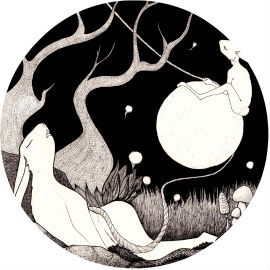— In honour of World Poetry Day
We are on the way to the meeting when one of the poets calls and asks us to pick up beer on the way. Although we are on the phone for a while (the fields of the Lockyer Valley flashing past us, fading into darkness as we pass) somehow the conversation never gets around to what kind of beer the poets desire.
I don’t know how many bottles of beer
I have consumed while waiting for things
to get better
wrote Charles Bukowski. Notice, however, that he doesn’t mention the kind of beer he is drinking. It is enough that it is beer.
Desire has been a concern of poets for centuries. Perhaps since the beginning of time, when some long-forgotten poet first stood to describe, in breathy rhyming tetrameter, the nature of his want. For food, for shelter, for wine, for love. (It would be better if these lines would rhyme).
Perhaps, I decide, poetry has always been a beggar’s art. A matter of describing the exact nature of the poet’s lack for those who might be able to fill it. The nature of love to the lover (future, current or departed). The nature of thirst for the wine-merchant. The nature of poverty for the patron. The more moving and exact you can be, the more likely your needs will be fulfilled.
We stop at a bottle shop on Gladstone Road and are soon inside, standing in the narrow gaps between towers of beer in boxes, red wine in boxes and laid along shelves, refrigerators full of cider and white wine.
We choose quickly, perhaps unwisely. Choosing beer is not the same as deciding whether to be a page or performance poet. Whether to spend your life sitting or standing. It is not even as difficult as deciding whether to use an iambic or dactylic meter. Still, it is hard.
The despair of poets is formidable, precise. I can already imagine their heavy sighs; the dutiful joy with which they lift the bottles to their mouths.
Do poets drink their beer, at meetings, from bottles or glasses? Are there glasses in the library, fit for the holy libation? If not, will they smile and quote Rumi (or, worse, will I?)?
We have a huge barrel of beer, but no cups.
That’s fine with us. Every morning
We glow and in the evening we glow again.
You are in the meeting with the poets and I am set loose in the city. I wander along the river; there are poets there, huddling in the unlit spaces, composing poems against the time when they must speak. They are the real poets, according to the old clichés. The lost and lonely and forlorn. The great unwashed who cluster beneath bridges. Poverty and poetry go hand in hand, don’t you know? Like beggars and beer. They know their lordly Baudelaire, who has told them:
ask the wind,
the wave,
the star,
the bird,
the clock,
ask everything that flees,
everything that groans
or rolls
or sings,
everything that speaks,
ask what time it is;
and the wind,
the wave,
the star,
the bird,
the clock
will answer you:
“Time to get drunk!
Don’t be martyred slaves of Time,
Get drunk!
Stay drunk!
On beer, virtue, poetry, whatever!”
I watch a film and eat sushi and drown an imported beer and wait. Upstairs in the library the poets gather, looking over the river. The room is small and square and clean. Like a good poem, or at least a short one. Something pithy and falsely brave. And you among them, my love.
I picture you bringing them the beer. I can see the way you will make this offering. Not like the Greeks or the Pagans, who knew how to enter with ceremony, bearing wine and goats and grain. They entered the temple barefoot (to show their humility), but held their heads high.
You are wearing your boots, but your head will droop on its sunflower stem. The bright flowers of your eyes, are too heavy a weight for that tender throat to lift. You will slide the beer onto the table, still in its plastic bag, and the godless poets – the poets who sometimes consider themselves fallen, barefoot gods – will smile. Or not. Be grateful, or declaim at the poverty of our selection.
And after the meeting is over, after the poets have decided who shall be invited to the feast, you will gather the empty bottles (how you love to occupy yourself with the small, essential tasks) and come down to the carpark. The poems in your head still there, still stalking like beautiful monsters behind your smile. And we will drive back through the city, down the miracle mile, through the Lockyer Valley, past One Tree Hill and Plainlands, and the bar that looks like a Mexican saloon, and the anti-abortion billboards and the shop where the ladies sell roses and coffee (the ladies who are sleeping now, in their town named after some German cousin, in their antique beds). Past the bridge with the graffiti that always makes you smile (Hello! I love you!). Past the sex shop that assures endless pleasure, and the pet store that is also selling love. Up the mountain, through the clouds, and home.
And what remains? — An empty shell!
A lifeless form both sad and queer,
A temple where no god doth dwell —
The simple memory of beer!
(from ‘The Empty Bottle’ by William Aytoun)


A perfect glass of beer size reflection -
Thank you darling! I'm raising a glass of fine Pinot noir to the rain tonight; hope you're also enjoying a fine evening's entertainment.
Nike, this is beautiful, again.
Thank you, Dallas! It feels a little like not-writing, just putting down what happens :)